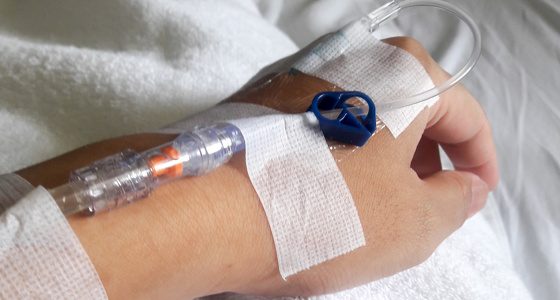New small molecule medications are being increasingly researched to treat IBD, with several now approved for the treatment of ulcerative colitis. Find out more about them in this article...
Several small molecule drugs (SMDs) are used in the treatment of inflammatory bowel disease (IBD). These include corticosteroids, aminosalicylates and immunomodulators (e.g. azathioprine, mercaptopurine and methotrexate). This article focuses on the next generation of small molecule drugs which have been approved for the treatment of ulcerative colitis (UC).
Small molecule drugs are compounds that regulate or modify a biological process. In the case of IBD they are utilised as an anti-inflammatory medicine that modifies the immune system but in a different way to biologics. They affect the immune system by blocking the ability of lymphocytes (white blood cells) to escape from the lymph nodes into the gut, where they can cause inflammation. They achieve this by sticking to the lymphocytes which stops them travelling through the gut mucosa, the innermost layer of the gastrointestinal tract.
The new small molecule medications approved for use in IBD are possible treatment options for adults with moderately or severely active UC when other treatments have been tried but prove unsuccessful. This means, in general, if your UC did not respond adequately to standard treatments or biologic treatments, you have not got better or have stopped getting better while on them, or you can’t tolerate standard treatments, biologic treatments and the side effects. The aim of IBD treatments is to improve the symptoms e.g., rectal bleeding and stool frequency and help achieve clinical remission where tests show you currently have no active inflammatory bowel disease.

Corticosteroids, aminosalicylates and immunomodulators (e.g. azathioprine, mercaptopurine and methotrexate) are all small molecule drugs. You can read more about these in these articles ...
The next generation of small molecule medications block enzymes involved in activating your body's immune system, reducing inflammation. They are known as Janus kinase (JAK) inhibitors. The JAK inhibitor medications used in treating UC are:
Other new small molecule medications belong to a class of medicines called sphingosine 1-phosphate (S1P) receptor modulators. The sphingosine 1-phosphate (S1P) receptor modulator used in treating UC is:
Depending on which type of small molecule medication you are prescribed you will have tests prior to starting it to see if it’s the right medication for you. These tests, dependant on which medications you’re prescribed, can include:
Your IBD team will also need to know if you:
Filgotinib, upadacitinib and ozanimod are in tablet form, usually taken orally once a day, with or without food. Tofacitinib is taken twice a day, once in the morning and once in the evening.
All small molecule medications have the potential risk of side effects. Some side effects can happen straight away, as a direct response to the medicine. This can include allergic reactions. Some side effects may appear gradually, or after a period of time. Some can be mild and will go away on their own, and some can be serious and may require treatment. Sometimes side effects can result in you having to stop a medicine, or change to a different one.
Some people will experience no side effects at all.
Different small molecule medications have the potential for different side effects. Your IBD team will give you detailed information about the particular medicine you are taking, and you can also read the patient information leaflet included in every medicine packet. More details about the specific side effects for each medication are available in the following articles…
Everyone responds differently to different types of medicine. Some people may find they begin to feel better as little as three days after starting treatment, but it can take a number of weeks for your treatment to have a noticeable effect. Read the articles on the individual medications filgotinib, tofacitinib,upadacitinib,ozanimod for information on how long they take to work.

